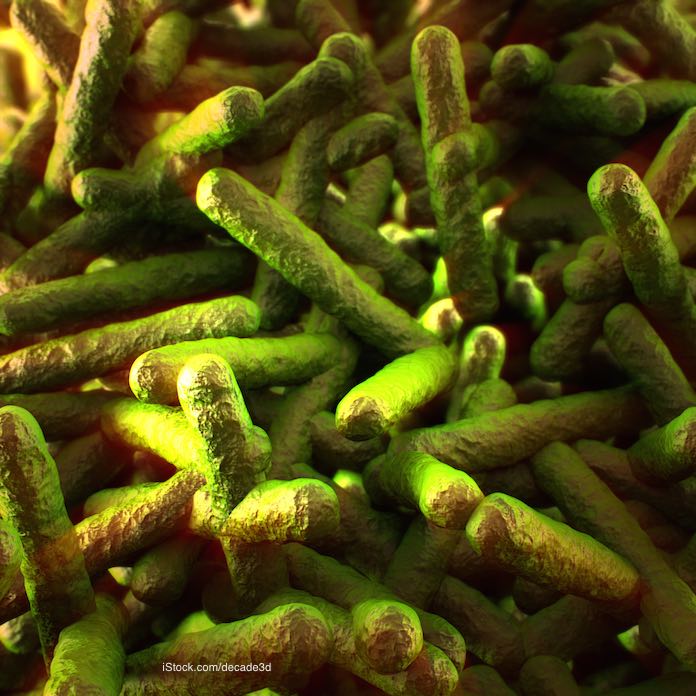Researchers at North Carolina State University have found new compounds that “may be effective in containing the virulence – or ability to produce disease – of Listeria, a well-known bacterium that can cause severe food poisoning and even death.” The research is a proof-of-concept study, which is an “early stage of clinical drug development when a compound has shown potential in animal models and early safety testing,” according to the NCBI. One strain of Listeria bacteria, called monocytogenes, can cause serious illness in humans.

The studies are used to estimate whether the compound may have significant efficacy in other diseases. The researchers know that inhibiting a certain enzyme that Listeria bacteria produces dramatically modify the bacterial cell surface. And this reduced the bacteria’s ability to cause illness.
The scientists characterized, analyzed, and virtually screened more than 88,000 compounds that may inhibit the enzyme, known as glucose-1-phosphate uridylytransferase (GaIU), in Listeria bacteria. The computer found 37 promising components that could be tested in vitro. Of those 37, three were effective enough to study them further.
Denis Fourches, assistant professor of computational chemistry said, “We can derive several predictive structure-activity relationships based on those 37 compounds and these relationships will help us design even more effective GalU inhibiting compounds. We plan to use our computers to virtually generate thousands of new analogues, virtually screen them, and select another batch of up to 50 molecules to be tested experimentally in the future. This is true research at the interface of disciplines.”
Fourches continued, “This proof-of-concept study shows that small molecules can actually be developed to cut down the activity of one specific bacterial enzyme, leading to the suppression of virulence. This is clearly a new avenue for fighting drug-resistant bacteria.”
Paul Orndorff, professor emeritus of microbiology at the University, said, “While our ultimate objective is to get away from antibiotics altogether, in the near term the antibiotic susceptibility opens up the possibility of combinatorial therapies that could include a GalU inhibitor and a known antibiotic such as cefotaxime. Ultimately, we believe if the GalU inhibitor is effective enough, the host (human or animal) should be able to eliminate the listerial population without antibiotics. For farmers working toward antibiotic-free farms, this could be a wonderful solution.”
Other researchers have found that targeting the cell wall may be an effective way of destroying these bacteria. E. coli bacteria, for instance, have a cell envelope with an inner and outer membrane that communicate with each other. Remove the connection between the outermsmbrane and periplasm, and the bacteria lose their ability to sense defects in the envelope.
Listeria monocytogenes outbreaks occur every year in this country. Last year, an outbreak linked to Vulto soft raw milk cheese, for instance, sickened six people. Two of those patients died. And in 2016, an outbreak linked to Dole salads sickened 19 people in 9 states.




